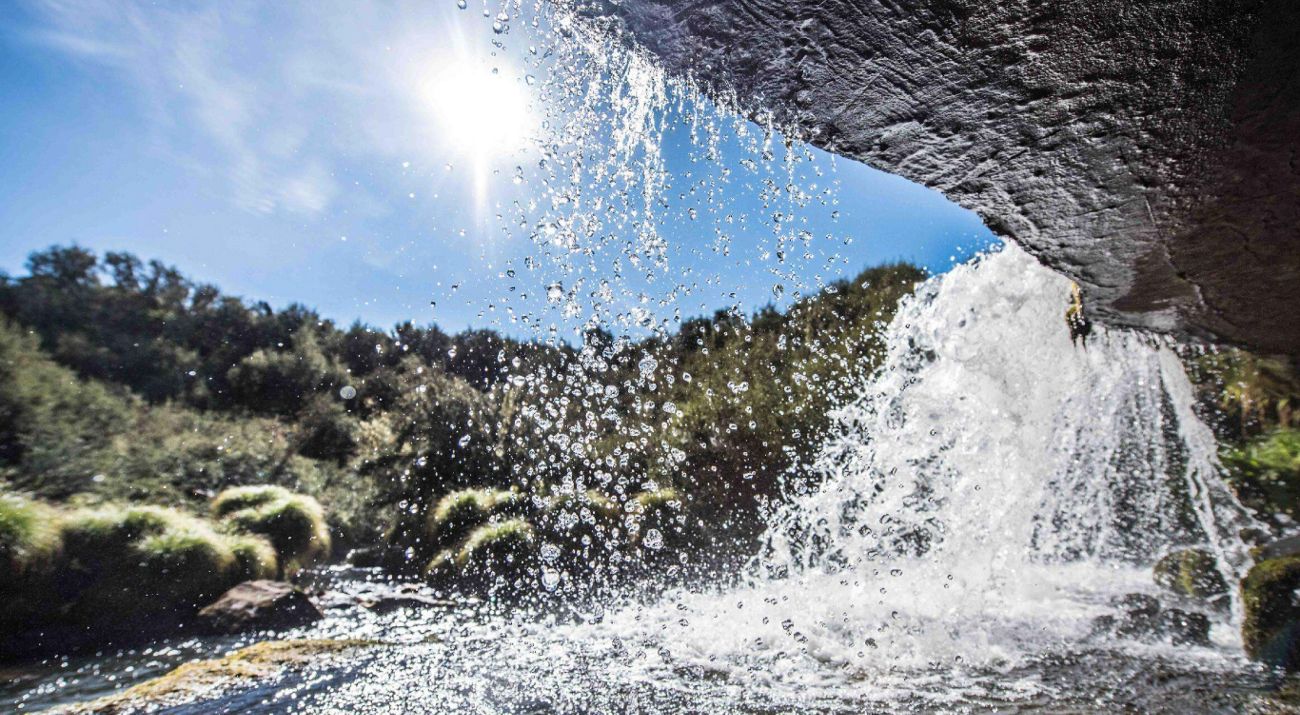
Media Contacts
-
Meita Annissa
Public Communications Manager YKAN
Yayasan Konservasi Alam Nusantara
Email: meita.annissa@ykan.or.id
Water resource resilience, a global concern, is intricately linked to ecosystem sustainability. The far-reaching effects of climate change, including biodiversity decline, land degradation, and water resource resilience, are felt worldwide. This urgent threat necessitates collaborative efforts to find and implement solutions.
Experts and government representatives from countries such as Indonesia, China, Kenya, and Peru share experiences and best practices in efficient water resource conservation. Discussions themed "Nature for Water: The Business Case for Nature to Deliver Value for Water Security," organized by The Nature Conservancy (TNC) and Yayasan Konservasi Alam Nusantara (YKAN) with partners, took place on March 23, 2024, during the High-Level Panel at the 10th World Water Forum (WWF) in Bali.

Deputy Minister for Maritime Affairs and Natural Resources at the Ministry of National Development Planning/Bappenas, Vivi Yulaswati, emphasized the importance of preserving natural functions as a fundamental development asset, currently under serious threat. Environmental degradation poses significant risks to food, energy, and water systems, which are crucial for societal well-being and economic growth. Climate crises, deforestation, and natural resource pollution require immediate and comprehensive action. Therefore, Bappenas calls for close collaboration among governments, private sectors, civil society, and the international community to protect and restore natural ecosystems, ensuring sustainable natural resources for future generations.
As a global conservation organization with over 60 years of experience, TNC has set conservation targets to achieve by 2030, prioritizing water resource protection. "Nature-based solutions are TNC's key strategy in protecting water sources across various countries. Wetland, forest, and river basin management have proven effective in safeguarding clean water sources and even boosting economies," said Andrea Erickson, Deputy Director of Food & Water Security at The Nature Conservancy.
These strategies have already demonstrated their effectiveness in river basins such as the Yangtze and Yellow Rivers in China, and in cities like Sao Paolo (Brazil), Nairobi (Kenya), Quito (Ecuador), and Cape Town (South Africa). The tangible benefits include bolstering water resilience, biodiversity, and local livelihoods. The pressing challenge of climate change underscores the need to accelerate the adoption of these strategies. Water resource resilience is a collective goal that can only be achieved through unified support for environmental conservation efforts, as Andrea concluded.

Meanwhile, Executive Director of Yayasan Konservasi Alam Nusantara (YKAN), Herlina Hartanto, noted Indonesia's potential to share lessons in water resource conservation through nature-based solutions. "Indonesia's natural resources are rich and, when well-protected and managed, can serve as our weapon against various pressures on water resources. Implementing Nature-Based Solutions will have positive impacts not only on water resources but also on climate, biodiversity, and society. However, multi-stakeholder collaboration and commitment are essential in managing and protecting tropical rainforest areas, peatlands, mangroves, and aquatic regions, and in accelerating the replication of successes to enhance water resilience in Indonesia." YKAN has worked in Indonesia for 10 years, collaborating with partners and local communities across 14 provinces.
In addition to discussing the implementation practices of nature-based solution strategies from various countries, funding opportunities were also explored to support the sustainability of nature conservation programs impacting water resource resilience and the organisms within.
Yayasan Konservasi Alam Nusantara (YKAN) is a scientific-based non-profit organization that has been present in Indonesia since 2014. With the mission of protecting lands and waters as life support systems, we provide innovative solutions to realize the harmony of nature and humans through effective natural resource management, prioritizing a non-confrontational approach, and building a network of partnerships with all stakeholders for a sustainable Indonesia. For more information, visit ykan.or.id.

